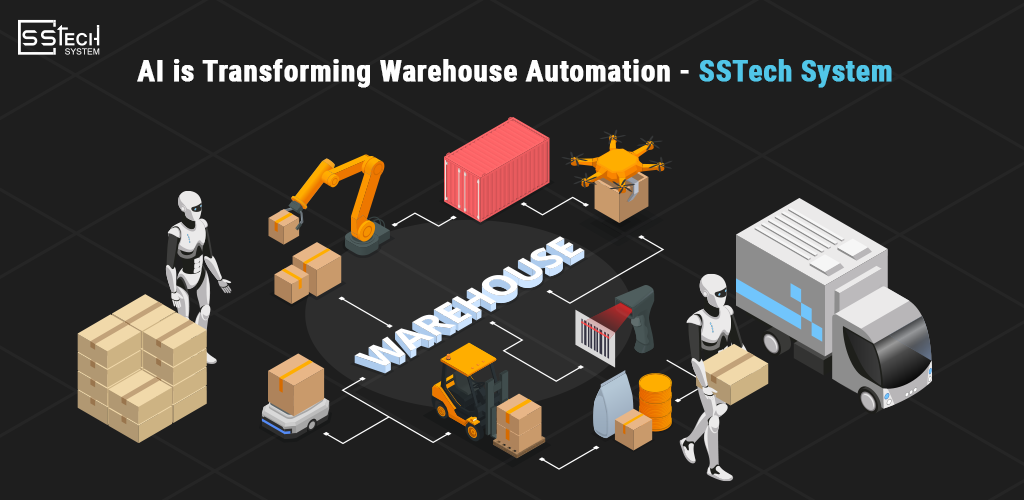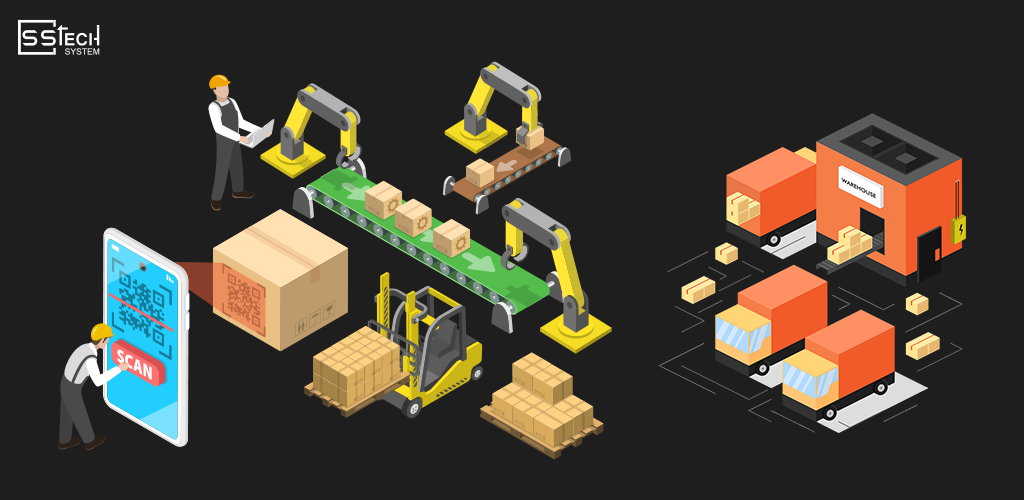
Warehouse automation is no longer only a buzzword in the high-speed world of transportation and supply chain management. The businesses that want to be at the top need to use it. As the use of artificial intelligence has become widespread and has been used in many areas such as storage and warehouse processes, the changes in the warehouse processes have been quite big.
This article delves into warehouse automation, examining its types, benefits, current trends, and the pivotal role AI will play in shaping the future of warehousing.
What is Warehouse Automation?
Warehouse automation involves using technology and machinery to carry out tasks previously performed by humans. When you employ technology and machines to expedite inventory management, order processing, and warehouse operations, you are “automating” the warehouse. It encompasses various automatic systems and technologies designed to decrease human labor, enhance warehouse efficiency, and improve accuracy. In essence, warehouse automation is the utilization of machines and technology to execute tasks typically undertaken by human workers in the warehouse.
Types of Warehouse Automation
Some of the types of Warehouse Automation Systems include:
-
Robotics:
The rise of warehouse robotics, including autonomous mobile robots (AMRs) and robotic arms, is streamlining tasks like moving goods, picking, packing, and palletizing. These self-moving robots enhance warehouse efficiency, optimizing picking routes and reducing trip times.
-
Autonomous Storage and Retrieval Systems (AS/RS):
These systems employ robots to automatically store and recover the items from the defined storage areas. These systems utilize the store area to its maximum and also accelerate order processing by elimination of the need to pick the items off the shelves by hand.
-
Warehouse Management Systems (WMS):
Warehouse Management Systems (WMS) play a vital role in automating warehouses by overseeing tasks like supply management, order processing, and worker assignments. Advanced WMS utilizes AI to forecast demand, optimize stocking levels, and maximize resource utilization.
What will be the next thing for Automated Warehouses?
The future of the warehouse industry with automation is getting brighter as the technology keeps on improving. Furthermore, the latest technologies, such as machine learning, the Internet of Things (IoT), and blockchain, will transform warehouse operations even further. They will enable monitoring in real-time, repairing problems before they occur, and seamlessly connecting across supply chain networks.
The plus of warehouse automation solutions is that it will make the work of the employees easier and more efficient.
-
Increased productivity:
Automation reduces the need for physical labor and monotonous, repetitive work. This enables warehouse workers to be more focused on the critical work which in turn increases the total productivity.
-
Better accuracy:
AI systems’ precision minimizes errors in order selection, item packaging, and inventory management.
-
Better visibility of inventory:
Warehouse control systems allow managers to supervise the movement of inventory in real-time, thus giving them a clearer picture of where and how much stock they have.
-
Faster order fulfillment:
Automated systems simplify dealing with and completing orders, reducing waiting times and thereby satisfying customers.
-
Saves on costs:
Spending a lot of money on warehouse technology may seem expensive at first, but the long-term savings on labor costs, faster speed, and fewer mistakes make it worth it.
-
Scalability:
Since automated systems are by nature scalable, stores can easily adapt to changing demand and business growth without any major problems.
Warehouse automation in 2024

The pace of warehouse technology development shows no signs of slowing down in 2024. Industry leaders are investing heavily in research and development to create innovative solutions tailored to the evolving needs of modern stores.
-
AI-powered predictive analytics:
Giant data sets generated by warehouse operations are being scrutinized using the analytics tools that AI is powering. Through the use of prediction algorithms, these systems can foresee the changes in demand, determine the optimal supply quantities, and identify possible issues with equipment or bottlenecks beforehand.
-
Integration of IoT devices:
The emergence of Internet of Things (IoT) devices such as sensors, RFID tags, and smart cameras enables stores to get real-time data on the movement of the product, the environment, and the performance of the equipment. After that, this data is utilized to make wise choices and boost the efficiency of the task.
-
Augmented reality (AR) for order picking:
AR technology is put to use to make the order-picking process quicker and more precise. AR headsets or smart glasses aid warehouse workers by providing real-time visual cues and directions, enabling precise item location within the warehouse.
-
Collective robotics:
Cobots, or collaborative robots, actively engage with people in shared office environments. With advanced safety features and intuitive controls, they enhance tasks by ensuring safety and efficiency, requiring human skill or decision-making.
-
Blockchain for supply chain transparency:
Researchers are actively exploring the potential of using blockchain technology to streamline and enhance the transparency of supply chains. Blockchain streamlines tracking goods from sellers to customers by securely storing financial data in a decentralized, unchangeable format. This diminishes the chance of fraud and strengthens the trust between all the parties involved.
Conclusion
AI in warehouse automation revolutionizes transportation and supply chains, enhancing efficiency, flexibility, and competitiveness. Leveraging technologies like robots, AI analytics, and IoT integration, warehouses improve customer experience, cut costs, and streamline operations. Future advancements promise even greater efficiency and effectiveness. SSTech WMS Solutions offers tailored automation solutions and expert guidance for businesses aiming to automate or optimize their warehouses. Stay ahead in a competitive market with the right blend of technology, strategy, and support. Contact SSTech System for more information.



